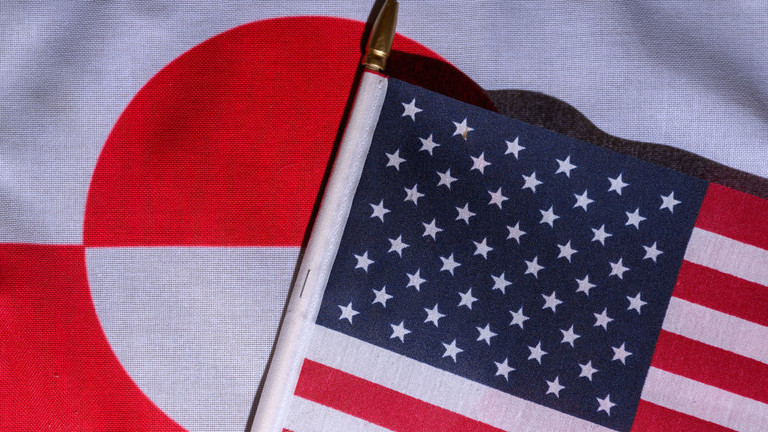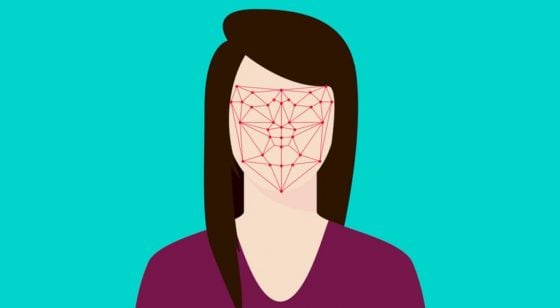This article was originally published by John W. Whitehead & Nisha Whitehead at the Rutherford Institute.
“It is just when people are all engaged in snooping on themselves and one another that they become anesthetized to the whole process. As information itself becomes the largest business in the world, data banks know more about individual people than the people do themselves. The more the data banks record about each one of us, the less we exist.”—Marshall McLuhan, From Cliche To Archetype

We’re being spied on by a domestic army of government snitches, spies, and techno-warriors.
This government of Peeping Toms is watching everything we do, reading everything we write, listening to everything we say, and monitoring everything we spend.
Beware of what you say, what you read, what you write, where you go, and with whom you communicate, because it is all being recorded, stored, and cataloged, and will be used against you eventually, at a time and place of the government’s choosing.
This far-reaching surveillance has paved the way for an omnipresent, militarized fourth branch of government—the Surveillance State—that came into being without any electoral mandate or constitutional referendum.
Indeed, long before the National Security Agency (NSA) became the agency we loved to hate, the Justice Department, the FBI, and the Drug Enforcement Administration were carrying out their own secret mass surveillance on an unsuspecting populace.
Even agencies not traditionally associated with the intelligence community are part of the government’s growing network of snitches and spies.
Just about every branch of the government—from the Postal Service to the Treasury Department and every agency in between—now has its own surveillance sector, authorized to spy on the American people. For instance, the U.S. Postal Service, which has been photographing the exterior of every piece of paper mail for the past 20 years, is also spying on Americans’ texts, emails, and social media posts. Headed up by the Postal Service’s law enforcement division, the Internet Covert Operations Program (iCOP) is reportedly using facial recognition technology, combined with fake online identities, to ferret out potential troublemakers with “inflammatory” posts. The agency claims the online surveillance, which falls outside its conventional job scope of processing and delivering paper mail, is necessary to help postal workers avoid “potentially volatile situations.”
Then there are the fusion and counterterrorism centers that gather all of the data from the smaller government spies—the police, public health officials, transportation, etc.—and make it accessible for all those in power. And that doesn’t even begin to touch on the complicity of the corporate sector, which buys and sells us from cradle to grave until we have no more data left to mine.
It’s not just what we say, where we go and what we buy that is being tracked.
We’re being surveilled right down to our genes, thanks to a potent combination of hardware, software, and data collection that scans our biometrics—our faces, irises, voices, genetics, even our gait—runs them through computer programs that can break the data down into unique “identifiers,” and then offers them up to the government and its corporate allies for their respective uses.
All of those internet-connected gadgets we just have to have (Forbes refers to them as “(data) pipelines to our intimate bodily processes”)—the smartwatches that can monitor our blood pressure and the smartphones that let us pay for purchases with our fingerprints and iris scans—are setting us up for a brave new world where there is nowhere to run and nowhere to hide.
For instance, imagine what the government could do (and is likely already doing) with voiceprint technology, which has been likened to a fingerprint. Described as “the next frontline in the battle against overweening public surveillance,” the collection of voiceprints is a booming industry for governments and businesses alike. As The Guardian reports, “voice biometrics could be used to pinpoint the location of individuals.”
We are now the unwitting victims of an interconnected, tightly woven, technologically evolving web of real-time, warrantless, wall-to-wall mass surveillance that makes the spy programs spawned by the USA Patriot Act look like child’s play.
Fusion centers. See Something, Say Something. Red flag laws. Behavioral threat assessments. Terror watch lists. Facial recognition. Snitch tip lines. Biometric scanners. Pre-crime. DNA databases. Data mining. Precognitive technology. Contact tracing apps.
These are all part and parcel of the widening surveillance dragnet that the government has used and abused in order to extend its reach and its power.
The COVID-19 pandemic has succeeded in acclimating us even further to being monitored, tracked, and reported for so-called deviant or undesirable behavior.
Consequently, we now live in a society in which a person can be accused of any number of crimes without knowing what exactly he has done. He might be apprehended in the middle of the night by a roving band of SWAT police. He might find himself on a no-fly list, unable to travel for reasons undisclosed. He might have his phones or internet tapped based upon a secret order handed down by a secret court, with no recourse to discover why he was targeted.
This Kafkaesque nightmare has become America’s reality.
Despite the fact that its data snooping has been shown to be ineffective at detecting, let alone stopping, any actual terror attacks, the government continues to operate its domestic spying programs largely in secret, carrying out warrantless mass surveillance on hundreds of millions of Americans’ phone calls, emails, text messages and the like.
The question of how to deal with government agencies and programs that operate outside of the system of checks and balances established by the Constitution forces us to contend with a deeply unsatisfactory and dubious political “solution” to a problem that operates beyond the reach of voters and politicians: how do you hold accountable a government that lies, cheats, steals, sidesteps the law, and then absolves itself of wrongdoing?
Certainly, the history and growth of the NSA tracks with the government’s insatiable hunger for ever-great powers.
Since its official start in 1952, when President Harry S. Truman issued a secret executive order establishing the NSA as the hub of the government’s foreign intelligence activities, the agency—nicknamed “No Such Agency”—has operated covertly, unaccountable to Congress all the while using taxpayer dollars to fund its secret operations. It was only when the agency ballooned to 90,000 employees in 1969, making it the largest intelligence agency in the world with a significant footprint outside Washington, DC, that it became more difficult to deny its existence.
In the aftermath of Watergate in 1975, the Senate held meetings under the Church Committee in order to determine exactly what sorts of illicit activities the American intelligence apparatus was engaged in under the direction of President Nixon, and how future violations of the law could be stopped. It was the first time the NSA was exposed to public scrutiny since its creation.
The investigation revealed a sophisticated operation whose surveillance programs paid little heed to such things as the Constitution. For instance, under Project SHAMROCK, the NSA spied on telegrams to and from the U.S., as well as the correspondence of American citizens. Moreover, as the Saturday Evening Post reports, “Under Project MINARET, the NSA monitored the communications of civil rights leaders and opponents of the Vietnam War, including targets such as Martin Luther King, Jr., Mohammed Ali, Jane Fonda, and two active U.S. Senators. The NSA had launched this program in 1967 to monitor suspected terrorists and drug traffickers, but successive presidents used it to track all manner of political dissidents.”
Senator Frank Church (D-Ida.), who served as the chairman of the Select Committee on Intelligence that investigated the NSA, understood only too well the dangers inherent in allowing the government to overstep its authority in the name of national security. Church recognized that such surveillance powers “at any time could be turned around on the American people, and no American would have any privacy left, such is the capability to monitor everything: telephone conversations, telegrams, it doesn’t matter. There would be no place to hide.”
Noting that the NSA could enable a dictator “to impose total tyranny” upon an utterly defenseless American public, Church declared that he did not “want to see this country ever go across the bridge” of constitutional protection, congressional oversight, and popular demand for privacy. He avowed that “we,” implicating both Congress and its constituency in this duty, “must see to it that this agency and all agencies that possess this technology operate within the law and under proper supervision so that we never cross over that abyss. That is the abyss from which there is no return.
The result was the passage of the Foreign Intelligence Surveillance Act (FISA), and the creation of the FISA Court, which was supposed to oversee and correct how intelligence information is collected and collated. The law requires that the NSA get clearance from the FISA Court, a secret surveillance court before it can carry out surveillance on American citizens. Fast forward to the present day, and the so-called solution to the problem of government entities engaging in unjustified and illegal surveillance—the FISA Court—has unwittingly become the enabler of such activities, rubberstamping almost every warrant request submitted to it.
The 9/11 attacks served as a watershed moment in our nation’s history, ushering in an era in which immoral and/or illegal government activities such as surveillance, torture, strip searches, SWAT team raids are sanctioned as part of the quest to keep us “safe.”
In the wake of the 9/11 attacks, George W. Bush secretly authorized the NSA to conduct warrantless surveillance on Americans’ phone calls and emails. That wireless wiretap program was reportedly ended in 2007 after the New York Times reported on it, to mass indignation.
Nothing changed under Barack Obama. In fact, the violations worsened, with the NSA authorized to secretly collect internet and telephone data on millions of Americans, as well as on foreign governments.
It was only after whistleblower Edward Snowden’s revelations in 2013 that the American people fully understood the extent to which they had been betrayed once again.
Even so, nothing really changed.
Since then, presidents, politicians, and court rulings have come and gone, but none of them have done much to put an end to the government’s “techno tyranny.”
At every turn, we have been handicapped in our quest for transparency, accountability, and a representative democracy by an established culture of secrecy: secret agencies, secret experiments, secret military bases, secret surveillance, secret budgets, and secret court rulings, all of which exist beyond our reach, operate outside our knowledge, and do not answer to “we the people.”
Yet the surveillance sector is merely one small part of a shadowy permanent government comprised of unelected bureaucrats who march in lockstep with profit-driven corporations that actually runs Washington, DC, and works to keep us under close watch and, thus, under control. For example, Google openly works with the NSA, Amazon has built a massive $600 million intelligence database for the CIA, and the telecommunications industry is making a fat profit by spying on us for the government.
Most recently, the Biden Administration indicated it may be open to working with non-governmental firms in order to warrantlessly monitor citizens online.
This would be nothing new, however. Vast quantities of the government’s digital surveillance is already being outsourced to private companies, who are far less restrained in how they harvest and share our personal data.
In this way, Corporate America is making a hefty profit by aiding and abetting the government in its militarized domestic surveillance efforts.
Cue the dawning of what The Nation refers to as “the rise of a new class in America: the cyberintelligence ruling class. These are the people—often referred to as ‘intelligence professionals’—who do the actual analytical and targeting work of the NSA and other agencies in America’s secret government. Over the last [20] years, thousands of former high-ranking intelligence officials and operatives have left their government posts and taken up senior positions at military contractors, consultancies, law firms, and private-equity firms. In their new jobs, they replicate what they did in government—often for the same agencies they left. But this time, their mission is strictly for-profit.”
The snitch culture has further empowered the Surveillance State.
As Ezra Marcus writes for the New York Times, “Throughout the past year, American society responded to political upheaval and biological peril by turning to an age-old tactic for keeping rule breakers in check: tattling.”
This new era of snitch surveillance is the lovechild of the government’s post-9/11 “See Something, Say Something” programs combined with the self-righteousness of a politically correct, technologically-wired age.
Marcus continues:
“Technology, and our abiding love of it, is crucial to our current moment of social surveillance. Snitching isn’t just a byproduct of nosiness or fear; it’s a technological feature built into the digital architecture of the pandemic era — specifically when it comes to software designed for remote work and Covid-tracing… Contact tracing apps … have started to be adapted for other uses, including criminal probes by the Singaporean government. If that seems distinctly worrying, it might be useful to remember that the world’s most powerful technology companies, whose products you are likely using to read this story, already use a business model of mass surveillance, collecting and selling user information to advertisers at an unfathomable scale. Our cellphones track us everywhere, and our locations are bought and sold by data brokers at incredible, intimate detail. Facial recognition software used by law enforcement trawls Instagram selfies. Facebook harvests the biometric data of its users. The whole ecosystem, more or less, runs on snitching.”
As I make clear in my book Battlefield America: The War on the American People, what we are dealing with today is not just a beast that has outgrown its chains but a beast that will not be restrained.










This only affects those who need to keep their activities hidden.
People with nothing to hide are unaffected by it, at least not in a negative way.
I doubt anyone here needs to stay hidden from them because they are doing anything wrong that needs to be kept secret.
And if you are, you should stop.
This means be careful who you sleep with…… 🙂
Interesting article with far-reaching implications on security AND liberty. Making the Nazi playbook possible again. https://therepublic1776.com/2021/06/03/nazi-propaganda-for-2021/
Stalin didn’t need the government to spy on anybody. He had friends, neighbors, coworkers, spouses and children to spy for him. Kind of like the liberal in today’s USA.
Not just liberals but many so called conservatives are rats! I had 3 different rats that all bragged about being republican super conservative and they were ALL super rats! They would call the cops for everything even on their friends! The rest of us managed to run one couple off and another called the cops so many times for stupid shit that they just quit responding to her. The 3rd one is still there and has 0 friends. If any of those rat fooks ever call on me they had better have damm good fire insurance!
That’s their work around for the 3rd A.
Of course most Americans are stupid and can only blame other “groups” like the good borg they were programmed to be. The Republicans have done no more than the Democrats to stop the growing cancer known as government. Otherwise, the #1 employer in the US would not be the Fed .gov. How is that a good thing? There are no “good” parties. None of them represent the people.
They lie to get elected, then they defer to the real bosses when making “laws” in order to enrich themselves and ensure a corporate board membership and book or speech deals after they are done with their “public service”. Grifters and downright crooks, one and all…left or right.
If you are online or have a cell phone and car, they have you. You don’t have to be guilty…you are probably on several lists and depends who is in power. At a whim you can be gone.
Don’t ask me how I know but doing things like using cash for everything local, have an old 3g flip phone and no text, using a maildrop in another town, driving older cars with no gps etc. really does work!
Exactly G – For starters, I don’t have any social media accounts (though I do look at brighteon.social, bitchute.com, and gab.com), I avoid getting on email lists, use a VPN, and when I’m going somewhere with another person I conveniently forget my cell phone and use theirs if necessary, that way there is no record of my locations when I travel. I never discuss personal business over the phone, only in person. I don’t do surveys, on-line or on paper. There are lots of things one can do to dramatically lower their digital foot print.
One must have the mentality, and live in the practice, that the State is not your friend, because it isn’t, and never will be.
As for this site, I believe there are at least one or two provocateurs, and likely this site is monitored. You probably realize that already.